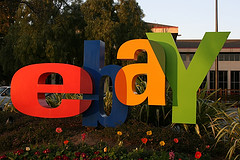Applying the GST to online purchases under $1,000 isn’t fair for people who cannot afford to travel outside the country to buy cheaper goods, an eBay executive has said.
While in Sydney for a meeting with the G20 taskforce that is looking at ways to reduce trade barriers — including taxes imposed on online sales — head of eBay’s government relations, Tod Cohen, said enacting the GST on purchases below $1,000 would turn sites like eBay and Amazon into tax collectors.
NSW Treasurer Mike Baird has pushed hard for lowering the GST threshold for online purchases and has talked about taxing global online sales above $20.
“Any time you get down to that type of threshold, you’re discriminating against Australians who can travel and those who can’t travel,” Cohen says.
“We try to maintain an opportunity for people to participate in the global marketplace and one of quickest ways to shut that down is by imposing taxes. There’s no way they’ll drop the threshold for international travellers. We’re not going to see duty-free shut down.”
Cohen says $1000 was a reasonable threshold, given the threshold in the United States was $800 and Europe was about the same.
To read the full story, click here.



